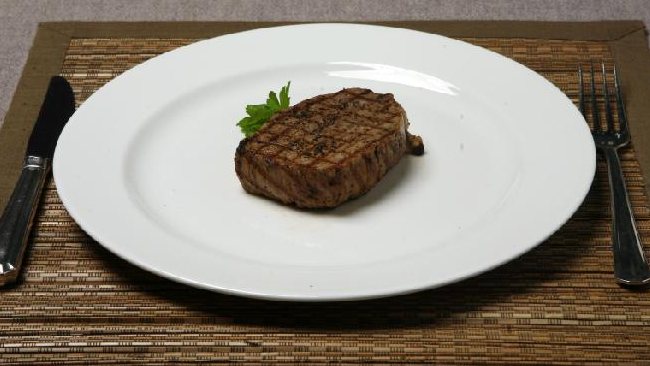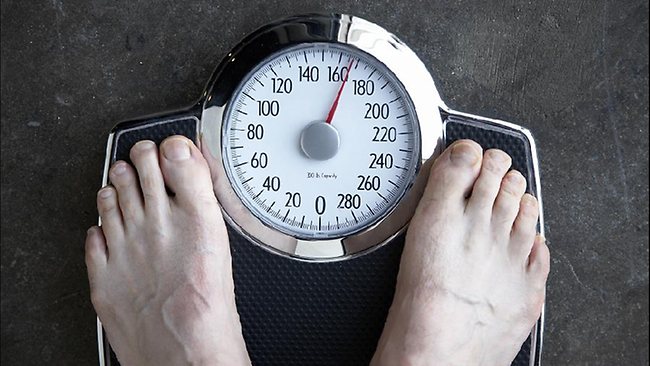Metabolism is a myth, say our experts
REALITY check: The time has come to stop blaming your body for being overweight. Metabolism is a myth, say our experts. Are you ready to be accountable?

Reality check: the time has come to stop blaming your body for being overweight.
A "sluggish metabolism" has often copped the blame for weight problems – but, it seems, wrongly so. Then why is it that some people can seem to eat non-stop and stay waif-thin while others only need to look at chocolate to gain weight? And what about all those supplements that claim to boost metabolisms?
Tim Crowe, associate professor of nutrition at Melbourne's Deakin University, says there is a whole lot of misinformation surrounding metabolism. The main myth is that overweight people have slower metabolisms and that is why they carry the excess kilos.
Mr Crowe says with the exception of endocrine disorders such as hypothyroidism or Cushing's syndrome, weight gain can rarely be explained by a slow metabolism.
In fact, he adds, overweight people usually have faster metabolisms than people who are a healthy weight."As someone gains more weight from storing more fat, the body needs to support that excess mass to carry it around. More body area equals a higher metabolic rate at rest," he says.
While genetics plays a small role in the speed of metabolisms, basal metabolic rates – the rate at which bodies burn calories at rest – are mostly influenced by age, sex, height and weight. In general, male metabolisms burn 300 more calories a day than those of females. However, metabolic rates drop with age, shorter people have slower metabolisms and muscle burns more energy than fat.
Accidental overeating
It's a common story: two people both claim to eat the same diet yet one is rail thin and the other has a body mass index in the overweight or obese zone. Differing metabolisms are often cited as the reason for the diverse body shapes.

Mr Crowe says this is too simplistic. While slower metabolisms can mean a person burns less, it also means they need to eat less to keep their body running. He says another issue with this argument is that many overweight people significantly underestimate how much they are actually eating. They also tend to eat larger meals more often than their skinny counterparts.
This is backed by several studies which have found that overweight people underestimate their calorie intake by 40 per cent, compared with healthy-weight people who underestimate their calorie intake by an average of 20 per cent.
“People tend to eat more than they think and will typically report eating less food than they actually do as their weight goes up," Mr Crowe says."The bigger a person is, the more likely they are to overestimate what a ‘normal' portion size is."
Do extreme diets slow metabolism?
Expert opinion appears divided on how big an impact very low calorie diets have on metabolism.
While some say these diets force a drop in daily energy burning of just a few hundred calories, associate professor Amanda Sainsbury-Salis, of the University of Sydney's Boden Institute of Obesity, Nutrition, Exercise & Eating Disorders, says the body's metabolic rate can drop significantly.
"Our research shows that after three months on a very low calorie diet, using shakes for example, people can be burning 1000 calories less a day and their weight loss can plateau," she says.

She and her colleagues believe they have found the answer to reversing this effect but are seeking candidates to take part in a 12-month weight-loss plan for research purposes.
"We want to find out whether fast weight loss causes a greater drop in metabolism than slow and steady weight loss, and whether the reductions in metabolic rate after weight loss are reversed," she says.
It is widely believed that when people manage to lose about 10 per cent of their weight, the body thinks famine is pending so it burns less fuel by slowing the metabolism.
Metabolism hype
"Many pills, foods and supplements claim to boost metabolism and burn fat. Most of these claims are unproven," Mr Crowe says.
While he concedes that some substances such as caffeine and chilli can marginally and momentarily boost metabolism – but not in supplement form? – he advises against using such methods to help with weight loss.
"Increasing your metabolism isn't a short cut to weight loss and may come with unintended side effects such as increased heart rate," he says.

A recent study into the metabolism-boosting power of green tea, long hailed as a miracle weight-loss aid, has found "loss in weight in adults who had taken a green tea preparation was statistically not significant and is not likely to be clinically important".
“If you're struggling to lose weight, it's probably time to reassess your diet and exercise levels," Mr Crowe says.
Fidget your way to a slimmer body
Keeping active is the key to burning energy, says Tim Crowe, associate professor of nutrition at Melbourne's Deakin University – and he's not just talking about proper exercise, as such. "Micro-movements throughout the day can add up to more calories burnt than you think," he says.
"Some people are born fidgeters and these people can often be lean because when they're awake they're rarely still, twiddling their thumbs, moving their legs and walking around."
This is confirmed by US research which found fidgeters do burn a lot more calories – about 380 every day.



